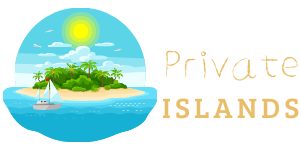Private Island Living
It may sound like a fantasy reserved for the elite, but owning an island is surprisingly more affordable than you might think. According to the website Private Islands Inc, which sells private island properties around the world, buyers can purchase a small, privately owned island for less than the cost of a large house in many locations.
Buying an island does come with some challenges. For example, if the property is undeveloped, it will be up to the buyer to construct their own water and power supply on-site, which can be expensive. Other issues include environmental assessments, permits, and construction timelines. Often, island buyers must hire a caretaker to manage the property in their absence, which can also be costly.
But if you’re willing to put in the time and effort, owning an island can be a once-in-a-lifetime experience. The peace and privacy of island life can be a welcome change from the hectic pace of daily urban living. Plus, the slow-paced nature of island life offers an opportunity to appreciate the beauty and wonder of natural surroundings.
The island life isn’t for everyone, however. Some people find it hard to adapt to the lack of modern conveniences, like a grocery store or fast food. Others struggle with the isolation of island life and the loneliness that comes from having no neighbors. And, if you’re not careful, the island lifestyle can be very expensive.
One way to mitigate some of the costs associated with private island living is by choosing an already-developed property rather than a raw, undeveloped one. The cost difference can be significant, especially if the island is in a region where building codes and environmental regulations are stricter.
In addition, choosing a turnkey island that has the basic amenities already built in can save you a lot of time and money. But, you should still make sure to carefully consider what amenities are important to you and how much you’re willing to spend on them.
Once you’ve determined your budget and found an island that meets your needs, it’s time to start looking at the details of each property. The most important factors include the region of the island, how close it is to the mainland and whether it’s in a country with good taxation (like Florida). It’s also worth thinking about the climate, as some islands are more prone to hurricanes and monsoons than others.
Once you’ve narrowed down your options, it’s time to visit the island and see how you like it in person. As you walk the beaches and explore the property, pay attention to how easy it is to get to and from the island. And, don’t forget to ask about the local culture and whether there are any cultural attractions nearby. The last thing you want is to end up on a remote island that feels too isolated and disconnected from the rest of the world.
